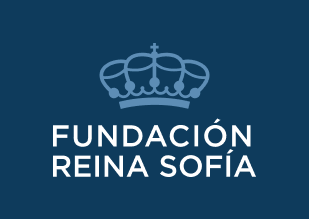FRS (Reina Sofia Foundation)
FRS-MEDICINA PRECISIÓN
Validation of a precision medicine tool based on online cognitive assessment, genetic risk stratification and blood biomarkers for the identification of preclinical Alzheimer's disease.
The aim is to create a global strategy to identify cases of Alzheimer's disease (AD) in target populations in the early stages of disease development (prodromal and preclinical cases of AD). This unmet medical need, strongly demanded by patients and relatives, is increasingly pressing in view of the imminent arrival of disease-modifying drugs. Justification and study design: This proposal consists of the launch of a nationwide web platform to test Precision Medicine tools. We propose a multi-step strategy by successively incorporating Precision Medicine techniques into diagnostic algorithms.
Budget 2023: 200.000€
Budget 2024: 481.875,58€
Budget 2025: 456.800€
IMPLEMENTATION PERIOD: 2023 –2026

FRS (Reina Sofia Foundation)
FRS-ELA “MANOLO BARRÓS”
ELA-Manolo Barrós Project. Search for diagnostic biomarkers of Amyotrophic Lateral Sclerosis (ALS) in extracellular vesicles.
Although in most ALS, patients do not present pathogenic mutations in SOD1, metabolic pathways involving this gene participate importantly in the cause and progression of the disease. The use of targeted therapies in ALS requires detailed investigation of these metabolic pathways involving SOD1. Information about a metabolic pathway is obtained through specific biomarkers that provide information about the functioning of the pathway.
These biomarkers also provide information about the success of a new therapy. Therefore, a line of research aimed at identifying biomarkers in ALS has tremendous translational potential in clinical routine. CIEN's main line of research is precision medicine and the search for biomarkers of neurodegenerative diseases.
A protein called TDP43 accumulates in more than 95% of the brains of ALS patients. This protein is normally present within the nucleus of brain cells, but is localised in atypical regions in ALS patients. In addition, this protein is also pathologically deposited in other diseases such as frontotemporal dementia, or even in association with Alzheimer's disease. The accumulation of this protein is also associated with accelerated ageing processes described in neurodegenerative diseases such as Alzheimer's disease and ALS.
Therefore, the detection of this protein in cerebrospinal fluid or blood of patients is a potential diagnostic biomarker of great interest, as well as the mechanisms associated with ageing that lead to a pathological accumulation of this protein.
TIMEFRAME: 2023 –2026
150.000€

FRS (Reina Sofía Foundation)
FRS-CUERPOS DE LEWY
Neuroimaging and Biomarker characterisation of Lewy body pathology in patients with mild cognitive impairment.
Mild Cognitive Impairment (MCI) is an intermediate stage between the cognitive changes of normal ageing and a more severe diagnosis of dementia. A correct early diagnosis at this stage would allow for interventions that could slow the progression of cognitive decline before the patient shows signs of dementia. Although previous studies have shown that MCI can be empirically differentiated into meaningful subtypes corresponding to different neuropathological substrates, its correct identification in the clinic has been challenging. For example, large clinicopathological studies have revealed that only about 50% of patients clinically classified as amnestic MCI, traditionally considered as a prodrome of Alzheimer's disease (AD) dementia, actually meet the neuropathological criteria for AD pathology at autopsy.
The main objective of this proposal is the study and validation of new biomarkers of LB pathology in MCI to allow further phenotyping of patients to enable the application of a precision medicine paradigm to neurodegenerative diseases. The CIEN Foundation is a unique research centre with unparalleled resources to carry out this type of clinicopathological research. On the one hand, our institution has a large biobank of brain tissue samples from approximately 800 brain donors, of which a subset also has coupled post-mortem CSF samples, as well as acquired ante- and post-mortem multimodal 3T MRI data (n=135). Therefore, this dataset offers a unique opportunity to conduct neuropathological validation studies of novel CSF and MRI biomarkers in a cohort of patients with dementia of various aetiologies.
Timeframe Execution: 2024 –2027
390.000€

Pasqual Maragall Foundation
GenOmics and Digital Neuropathological Phenotyping of Iberian Brains - GADIR
Dementia is a syndromic term that encompasses several neurological diseases leading to cognitive impairment that significantly affects daily life. Alzheimer's disease (AD) is the most prevalent, along with vascular dementia, frontotemporal dementia and Lewy body dementia. To properly design diagnostic tools and therapeutic drugs, we need to understand the genetic and molecular mechanisms underlying each of these pathologies. Recent genetic studies on AD have reported more than 70 loci associated with the disease. However, in an effort to increase statistical power, these studies have incorporated clinical and proxy cases, often with accuracy rates of only 60-80%. This practice has led to the misattribution of ageing-related genes as markers for AD, dilution of heritability estimates and the creation of inaccurate risk assessment tools. It is now known that AD rarely occurs in isolation. Instead, it is most often associated with prevalent copathologies such as vascular disease, Lewy Bodie disease or TDP-43 copathologies. Therefore, there is a continuing need for genetic research carried out on thoroughly and accurately phenotyped cases. This project aims to address this need by establishing the largest Iberian cohort of neuropathological dementia cases together with genomic data. We will pool over 3,500 brain samples from 16 brain banks to (1) build a harmonised database to facilitate comparison of multiple neuropathologies, (2) generate an associated genomic database, and (3) build a digitised database of the same. Finally, with this valuable resource we will investigate genetic factors that align with different disease processes, examine correlations between neuropathological features, and refine existing polygenic risk scores. This research has the potential to deepen our understanding of the genetic and molecular underpinnings of dementia-related diseases, while establishing a competitive and highly sought-after database.
2025 - 2027
Alberto Rábano
799.914,30€ / 399.982,00€

FRS (Queen Sofia Foundation)
Epigenetic clocks for the measurement of accelerated ageing in Amyotrophic Lateral Sclerosis.
The main objective of this study is to perform an epigenomic screening by analysing the methylation patterns of ALS patients and control individuals belonging to the Vallecas study. To carry it out we have the collaboration of Prof. Alfredo Ramirez from the Department of Psychiatry and Psychotherapy of the University Hospital of the University of Cologne. Dr. Ramirez is professor of neurogenetics of cognitive disorders, with extensive experience in genetics and epigenetics of complex neurodegenerative diseases. His research group is dedicated to understanding the intricate (epi)genetic architecture that modulates the processes of neurodegenerative diseases such as dementias and cognitive disorders. To achieve this goal, they have developed and implemented innovative and robust methods to identify and characterise genetic and epigenetic factors that influence the risk and progression of these disorders.
Budget 2025: €75,000
Budget 2026: €75,000
IMPLEMENTATION PERIOD: 2025 -2026

Race Against Dementia
Race Against Dementia ARUK FELLOWSHIP
RAD_UK
Exploring the utility of synaptic markers in Frontotemporal Dementia
Dr. Aitana Sogorb
498.816£
£ 171,432.51
01/01/2022-31/12/2026
01/09/2025-31/12/2026
The implementation period for the project at CIEN begins on 01/09/2025, and the budget will be transferred from University College London.
